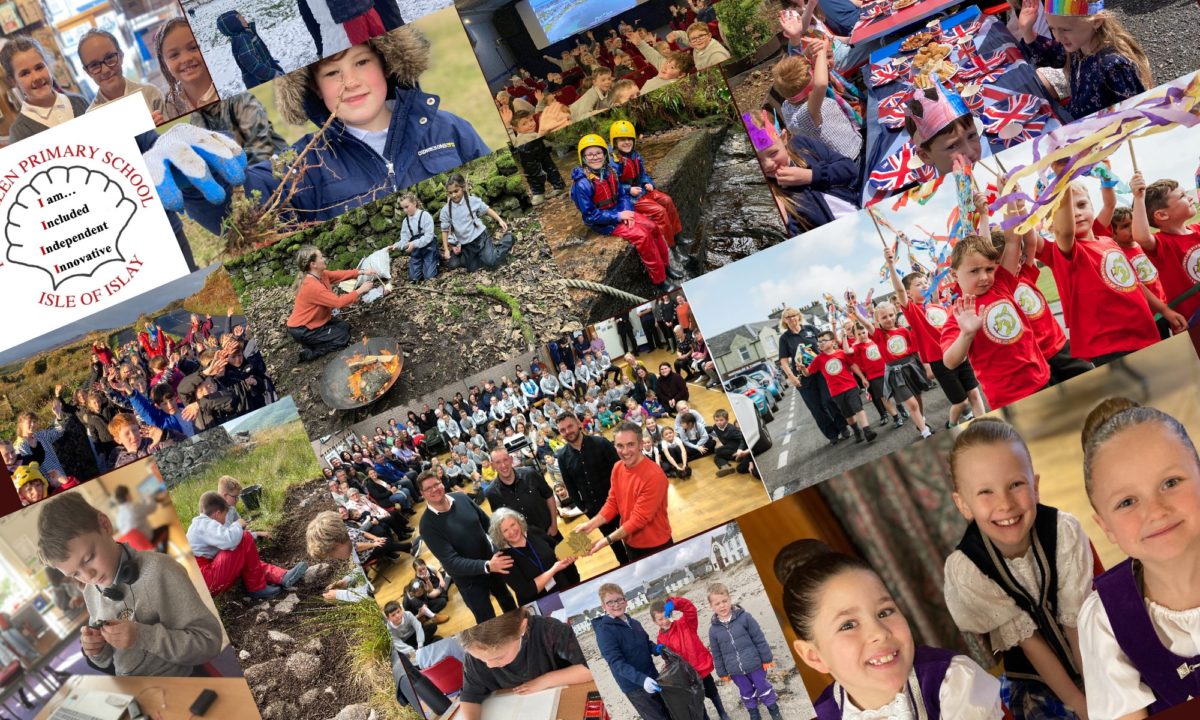We have been learning the gaelic song Birlinn Ghoraidh Chróbhain as part of our Dunyvaig learning. Godred Croven was one of the earliest settlers on Islay and probably used Dunyvaig as a base.
When the mighty Norwegian King Harold Hardrada was killed in battle in 1066, his Chief of Staff was Goraidh Crobhan (Godred of the white hand), who escaped and made his way to the Island of Islay, where his reputation as a clever and fearless warrior had gone before him. Men flocked to join him, and he was victorious in his battle with Fingal, King of Man and the Isles. He also fought successfully against Malcolm Canmore. In our animation you can see him travelling a Birlinn to Islay from the Isle of Man.
Ghoraidh Chróbhain is best known on Islay in a legend where he cleverly kills a dragon that was eating people and cattle, so we decided to have him slay a sea monster in our video, xan you spot it? He died in 1095 as a result of the plague that was sweeping the area and is said to be buried on Islay.
We used stop motion animation to film the story of the song, and also recorded us singing along. We hope you enjoy the animation!
Here are the words:
Hóbhan na hóbhan hó, hi horó na hùbhan,
Hóbhan na hóbhan hó, Air Birlinn Ghoraidh Chrobhain
Fichead sonn air cùl nan ràmh,
Fichead buille lùghmhor,
Siùbhlaidh ì mar eun a’ snàmh,
Is sìoban thonn ‘ga sgiùrsadh.
Suas i sheòid air bàrr nan tonn !
Sìos gu ìochdar sùigh i !
Suas an ceòl is togaibh fonn,
Tha Mac an Righ ‘ga stiuireadh !
Dh’ fhàg sinn Manainn mòr nan tòrr,
Eireann a’ tighinn dlùth dhuinn,
Air Ile-an-Fheòir tha sinn an tòir
Ged dh’ èireas tonnan dùbh-ghorm.
Translation:
Hóvan, na hóvan ho,
Hee horó, na hóvan,
Hóvan, na hóvan ho
The barge of Gorrie Cróvan
Behind the oars, a score so brave,
A lusty score to row her,
She sails away like bird on wave,
While foaming seas lash o’er her.
Up she goes on ocean wave !
Down the surge she wails O,
Sing away; the chorus, raise,
A royal prince; he sails her !
The towers of Man we leave away,
Old Erin’s hills we hail O,
On Islay’s shore her course we lay
Though billows roar and rave O.”



Tha d’oran agus do dhealbhan uarraidh math.
Mòran taing!